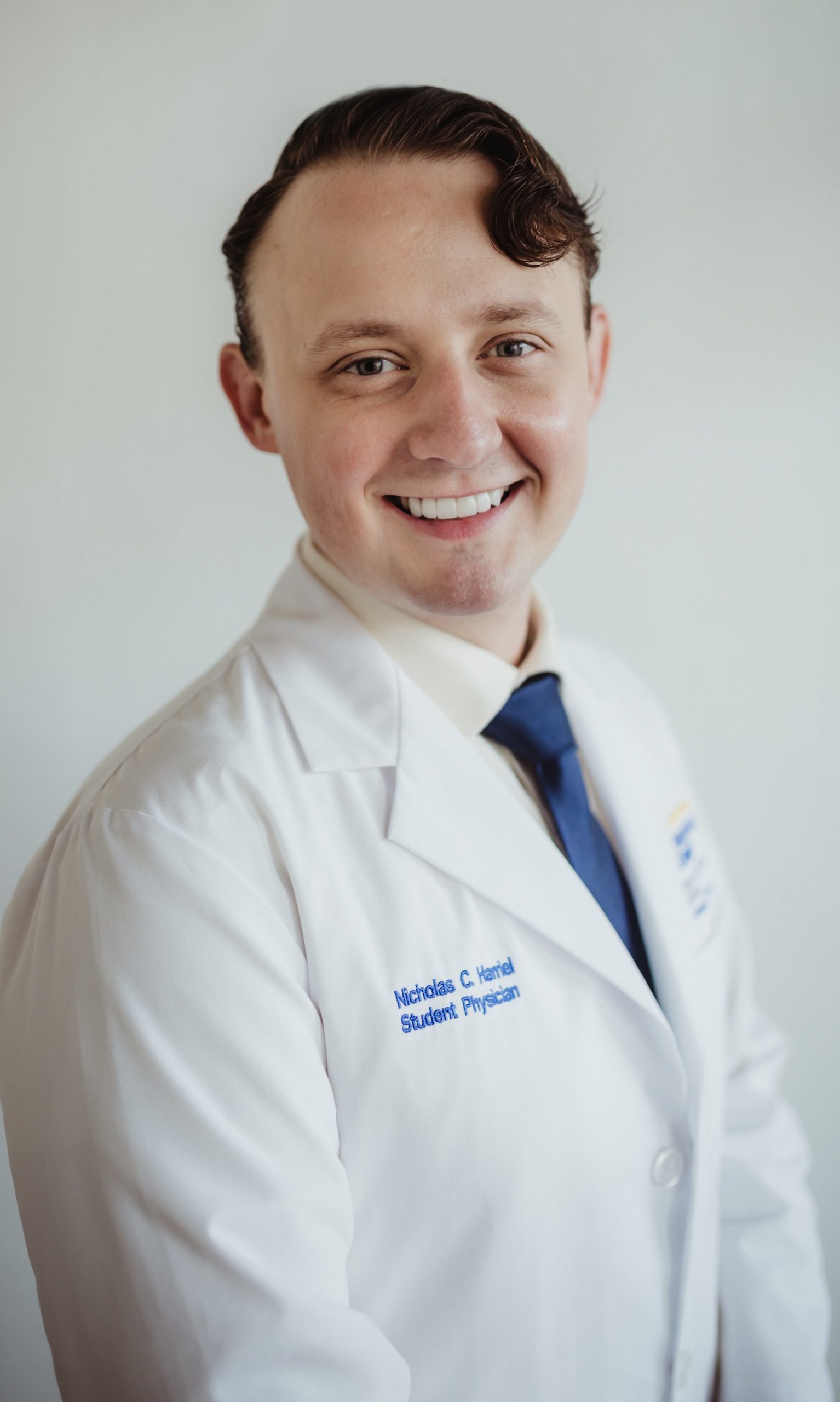The second part of our interview with Nicholas Harriel is here! (Read Part 1
here).

We dive into his experience taking COMLEX, and share his advice on how to address challenges—and how to grow and prosper from them—on the Road to DO Licensure.
How did you prepare for COMLEX, and what advice do you have for others about to take the exam?
For Level 1, I started by picking out resources to use. I booked out my schedule per blocks and listed what subject each block would cover. For example, 8 AM to 9 AM would be 1-2 chapters in pathology, 9 AM to 11 AM would be 100 practice questions, 11 AM to 12 PM was question review for those I got wrong, etc. I also added a full-length practice exam at the beginning, middle, and end of dedicated. I don’t really like taking breaks every hour on the hour and instead held them over for longer breaks at points in the day. I was done studying by 9 PM every night and in bed by 10 PM, with one day off a week for rest. This was a very efficient system—until I deviated from it.
It was a few weeks into board prep, and I was not seeing my score really climb on practice tests. I started feeling overwhelmed and critical of myself. This led me to cut more breaks and I stopped taking my one day off a week. There came a time when waking up day-in-and-day-out to sit behind a screen started to really take a toll on my mental health and my ability to engage with the study material. My scores started to decrease, my mental health quickly tanked, and soon I realized I couldn’t keep that up. I went back to following my original schedule, reached out to loved ones for support, and when necessary, took impromptu time off when I really didn’t think I could keep going. My mental health started to improve, and scores started to increase, at first small jumps, and then later into dedicated, large jumps. I guess a lesson of what not to do and the importance of trusting the process.
First, as I’ve outlined from my lessons learned—have faith in the process and your plan. Create a dedicated study schedule as detailed as you can and include within the schedule regular breaks and additional open blocks where you can either catch up on study material or take additional needed time off. Usually, this schedule can be made over 6 weeks but varies from person to person. Even then, most schedules have a lot to fit into one day. Combat overwhelming your schedule by using as few trusted study resources as possible and to be generous when mapping out time for each block of material. Finally, be kind to yourself and give grace through the growth process. Do not allow scores to determine your self-worth or how you see yourself as a student. Especially when taking a practice test in the beginning of your dedicated block. Try your best to shake off the bad and celebrate every piece of the good.
What are some challenges you faced, and how did you overcome them?
Like many med students, I tend to keep working until my fumes are out. I think what it comes down to is identifying when you need downtime—or when you need additional resources and assistance and then acting on that. For example, I often check in with my loved ones. They help me gauge where I’m at. Pulling on support structures helped to remind me that I wasn’t taking on the challenge of dedicated alone—I had people in my corner. I have also sought school-provided resources for support as well. It’s okay to break away from a routine that is not serving you well and it’s okay to admit when you’re not okay and need help.
What are you looking forward to the most in the next stage of your journey?
I am pursuing internal medicine and looking forward to taking care of patients, but also advocating for patients. I believe my interests in care for patient populations, advocacy, and non-profit involvement are reflective of my time growing up in a small Southern town. My childhood instilled in me an ongoing love for Southern communities and respect for the barriers those communities overcome. Some of those barriers are caused by undertones that remained in the wake of years of slow progression in the sphere of civic policy.
As an LPN, I saw first-hand how those undertones and barriers could aid in poor outcomes for underserved patient populations. I wanted to do something about that. I wanted to help change the environment for communities like the one I grew up in. That desire followed me to medical school and has steered my involvement ever since. I look forward to matching into a residency that will help further build my skills as both a physician and advocate for underserved patient populations; I want to improve lives for those in communities similar to the one I grew up in.
See All
You may also like
Daniel Persson, DO, MBA, is a recent graduate of Ohio University Heritage College of Osteopathic Medicine (OU-HCOM)....
McKayla Muse, DO, is a member of the first class to graduate from the Oklahoma State University Center for Health...
Matthew Parsley, DO, MS, is a recent graduate of the West Virginia School of Osteopathic Medicine. He matched in...

